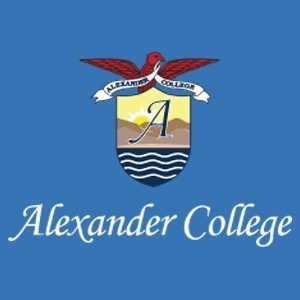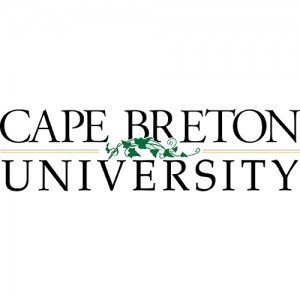Photos of university / #uofwaterloo
The Bachelor of Environmental Engineering with a specialization in Geological Engineering at the University of Waterloo is a comprehensive undergraduate program designed to prepare students for a dynamic career in the fields of earth sciences, resource extraction, environmental protection, and sustainable development. This program combines foundational knowledge in geology, geotechnical engineering, hydrology, and environmental science with practical skills essential for solving real-world problems related to the Earth's resources and environment. Students will explore topics such as mineral and energy resource development, environmental site assessment, geotechnical design, and risk analysis, equipping them with a versatile skill set relevant to industries like mining, consulting, environmental management, and government agencies. Through a blend of classroom instruction, laboratory work, and hands-on field experiences, students gain a thorough understanding of geological processes, material characterization, and the application of engineering principles to address challenges posed by natural and human-induced changes to the environment. The program emphasizes sustainable development practices and responsible resource management, preparing graduates to contribute meaningfully to society by ensuring the safe and efficient use of Earth’s resources while minimizing environmental impact. Students have access to state-of-the-art facilities, industry-standard laboratories, and opportunities for co-op work placements that provide valuable industry connections and practical experience. The program culminates in a Capstone project where students integrate their learning to solve complex geological and environmental problems, often in collaboration with industry partners. Graduates of this program are well-equipped to pursue careers in geological consulting, environmental assessment, resource extraction, infrastructure development, and research, or to continue their education through graduate studies. The University of Waterloo’s commitment to experiential learning and innovation ensures that students graduate with not only strong technical skills but also professional competencies, critical thinking, and a global perspective that are essential in today’s rapidly evolving environmental and engineering sectors.
The Bachelor of Science in Geological Engineering at the University of Waterloo is a comprehensive program designed to prepare students for a dynamic career in the field of geosciences and engineering. This multidisciplinary program combines principles of geology, mineralogy, hydrology, geotechnical engineering, and environmental science to provide students with a solid foundation in understanding Earth's processes and the engineering challenges associated with them. Throughout the program, students engage in both theoretical coursework and practical hands-on experiences, including laboratory experiments, field studies, and project-based learning.
The curriculum emphasizes the development of critical skills such as site investigation, resource exploration, environmental assessment, and sustainable engineering practices. Students learn to analyze geological data, interpret geological maps, and use modern software tools for modeling and design. The program also offers specialized courses in areas like mineral resource development, geotechnical engineering, and hydrogeology to prepare graduates for various roles within the industry.
In addition to technical training, the program fosters essential skills in communication, teamwork, problem-solving, and ethical responsibility. Students have access to state-of-the-art laboratories and field equipment, supporting experiential learning and research opportunities. The program is accredited and designed to meet the requirements for professional engineering licensure, enabling graduates to pursue careers as consulting engineers, environmental consultants, resource managers, or technical specialists within government agencies and private firms.
Students are encouraged to participate in co-op work placements, which provide valuable industry experience and professional networking opportunities. These placements often lead to employment after graduation and facilitate a smooth transition into the workforce. The University of Waterloo’s strong links with industry partners and professional organizations ensure that students stay informed about current trends and innovations in geological engineering.
Overall, the Geological Engineering program at Waterloo aims to equip students with the technical expertise, practical skills, and ethical mindset necessary to address complex geological and engineering challenges in sustainable and responsible ways. Graduates leave the program prepared to make meaningful contributions to society, whether through resource development, environmental protection, or infrastructure development, ensuring that they are competitive and adaptable in a rapidly changing global landscape.
The Bachelor of Science in Geological Engineering at the University of Waterloo requires completion of a total of 120 credit hours, typically undertaken over four years of full-time study. The program combines foundational courses in earth sciences with specialized engineering coursework to prepare students for careers in resource extraction, environmental management, and geotechnical engineering. Candidates must complete core courses such as Geology, Mineralogy, Structural Geology, and Geotechnical Engineering, alongside engineering principles including Fluid Mechanics, Materials Science, and Soil Mechanics. Additionally, students are required to undertake practical laboratory and field courses that provide hands-on experience in geological surveying, soil and rock testing, and site investigation techniques. The program emphasizes integrating sustainable practices and safety standards within geological engineering applications, aligning with industry best practices. Students also have opportunities to participate in co-operative education placements, internships, or research projects, which are integral to gaining real-world experience. To graduate, students must also complete a capstone project that involves solving an engineering problem related to geological hazards, resource management, or environmental protection. Elective courses allow students to specialize in areas such as mineral processing, hydrogeology, or excavation design. Throughout the program, students are encouraged to develop strong communication, teamwork, and project management skills essential for professional practice. The program is accredited by the Canadian Engineering Accreditation Board (CEAB), ensuring graduates meet national standards for engineering education. Overall, the Geological Engineering program at Waterloo prepares students to become innovative engineers capable of addressing complex geological challenges in a variety of industries.
The University of Waterloo offers a comprehensive range of financing options to support students enrolled in the Geological Engineering undergraduate program. Prospective and current students can access several funding sources, including entrance scholarships, which are awarded based on academic excellence and extracurricular achievements. These scholarships can significantly reduce the financial burden and are renewable annually, contingent upon maintaining specified academic standards. Additionally, the university provides need-based bursaries to assist students facing financial challenges, ensuring that capable individuals can pursue their studies without undue hardship.
Students are encouraged to explore external financing opportunities, such as government student loans and grants, which vary depending on the student's province or territory of residence. The Ontario Student Assistance Program (OSAP) is one of the primary provincial grants available, offering low-interest loans and grants to eligible students. Some students may also secure external scholarships or sponsorships from industry partners, government agencies, or private foundations dedicated to supporting engineering education.
Work-study programs are available, allowing students to gain practical experience while earning income to help cover expenses. These positions are often connected to research projects and departmental operations, providing valuable industry experience aligned with geological engineering. The university also advises students on part-time employment opportunities both on and off-campus, which can supplement their income.
For international students, specific scholarship programs are available, including entrance awards and departmental scholarships, which require detailed applications and hold competitive criteria. Graduate funding options, including research assistantships and teaching assistantships, are also accessible for students pursuing graduate studies within the Geological Engineering field.
Overall, the University of Waterloo is committed to making geological engineering education financially accessible through a combination of internal scholarships, external awards, government aid, loans, and on-campus employment. Students are encouraged to apply early and consult the university's financial aid office for personalized guidance to maximize their funding opportunities and ensure a financially sustainable educational experience.
The Bachelor of Science in Geological Engineering at the University of Waterloo is a comprehensive program focused on the application of geological sciences in the field of engineering. It prepares students to work in areas such as mineral and energy resource exploration, environmental assessment, geotechnical engineering, and natural hazard evaluation. The program emphasizes the development of strong foundational knowledge in geology, geophysics, geotechnics, and hydrogeology, along with practical skills through laboratory work, field training, and industry internships.
Students engage in courses that cover mineral deposits, structural geology, petrology, and geomechanics, providing a well-rounded understanding of Earth's processes and materials. The curriculum is designed to integrate theoretical learning with practical applications, encouraging students to participate in field excursions and research projects that mimic real-world challenges faced by geological engineers. Modern laboratory facilities, including advanced geophysical equipment and mapping tools, support hands-on learning.
The program collaborates closely with industry partners, offering co-op opportunities that allow students to gain valuable work experience while earning their degree. These internships typically take place in various sectors, including mining, consulting, environmental management, and construction. Graduates of the program are well-equipped for careers in resource development, environmental consulting, engineering firms, and government agencies, or for further study in graduate school.
The Faculty of Engineering at the University of Waterloo is known for its innovative teaching methods and strong industry connections, which benefit students through mentorship, research opportunities, and networking events. The program also emphasizes sustainability, responsible resource management, and safety standards, integrating these themes throughout the coursework. Overall, the Geological Engineering program aims to produce skilled, adaptable professionals ready to address the complex geological challenges in a changing world.





